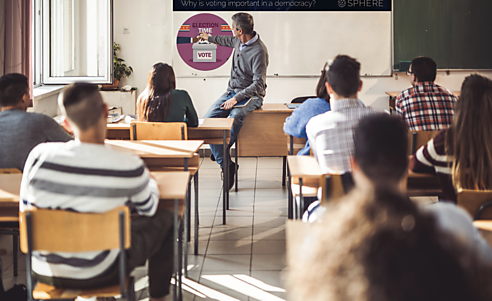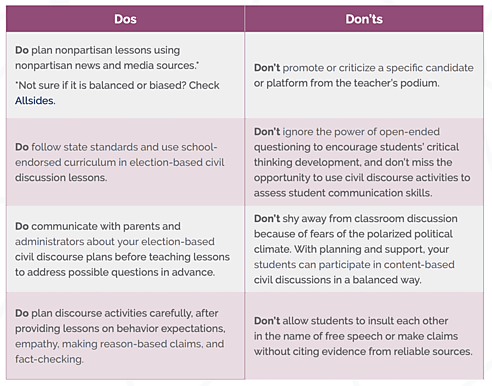Overview
Teaching students how to have respectful conversations about elections can improve their communication skills and understanding of the electoral process. It also helps them learn to find common ground with people who have different opinions.


